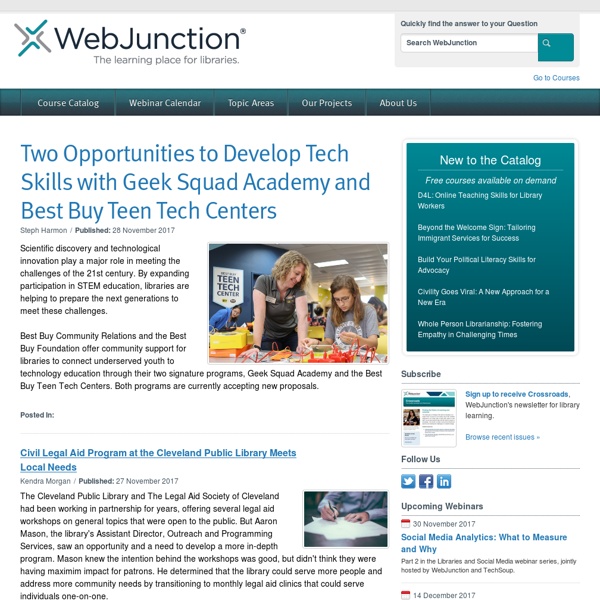



5 Thought-Provoking Podcasts Every Librarian Should Listen To | Digitales Blog Late to the podcast game? Here are some of our quick recommendations for where to start! From librarians, for librarians. 1) Cyberpunk Librarian Hosted by Daniel Messer, the Web Content Manager for the Maricopa Country Library District — that’s in Phoenix, Arizona, USA, by the way — the Cyberpunk Librarian podcast explores ideas, trends, and other relevant topics for technologically minded librarians who are high tech but have a low budget. Links: Check out Episode 46 – Minecraft for Librarians – it’s a great starting point for the uninitiated who want to get on the Minecraft bandwagon.You can listen to the podcast on YouTube and access the resources mentioned in each episode on their website.Read more about Dan here. 2) T is for Training In their own words, T is for Training is “an informal podcast dedicated but not obsessed with training in libraries”. Timing-wise it might be complicated since they’re in the US, but you can call into the show! 3) LibUX 4) Open paren
Computer Science Could Learn A Lot From Library And Information Science Computer science curriculums have long emphasized the power of data, encouraging its harvesting and hoarding, pioneering new ways of mining and manipulating users through it, reinforcing it as the path to riches in the modern economy and proselytizing the idea of data being able to solve all of society’s ills. In contrast, library and information science curriculums have historically emphasized privacy, civil liberties and community impact, blending discussion of public data management with private data minimization. Tomorrow’s future technology leaders could learn much from their library-minded colleagues. As a young computer science student at what was then the #4-ranked computer science program in the nation (today #5), my coursework was filled with all manner of practice and theory on how to acquire, manage and mine the world’s largest datasets. The focus was on capability, of what "could" be done with data, rather than what "should" be done with data.